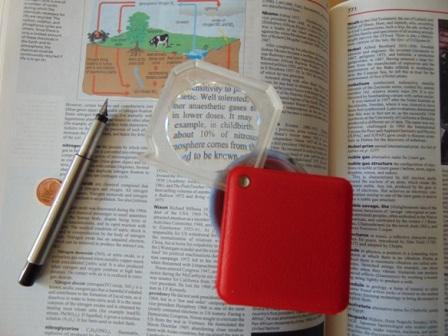(I’m not English, so please correct my language, words, sentences (besides the content).)
All improvements and additions are very welcome, we’re grateful to receive your mail.
Unfortunately, a lot of expressions, sayings, typical and regional old words, jokes, word games and funny word constructions often with a double meaning didn’t survive the translation to English. But maybe, sooner or later, I will receive other suggestions. From you?
 Sometimes hard to find were good (non-scientific) translations for chemical substances and differences between almost similar materials. Double check if there is any doubt possible.
Sometimes hard to find were good (non-scientific) translations for chemical substances and differences between almost similar materials. Double check if there is any doubt possible.
I should be grateful if you should even correct just one article. Stuff like Chamomile types is horrible to translate.
Units of measurement are given in metric, and – if right translated, American notation. (.=European,). Most references are in the male form (he, his, him) en often can be read as female (she, her), except for gender different or medical stuff.
Sometimes there are lists of items (crops, herbs…). They seems to be in no way organized. That’s partly truth. The original lists were alphabetical, in Dutch. To find them easily back for additions or corrections, I maintained the same sequence. Handsome to me, silly to you. Sorry.
Abriviations:
a.o. : among(st) others
BC : Before Christ, before the year 0.
BP : Before Present
C : Celsius, for standard temperature. If not mentioned (F for Fahrenheit or K for Kelvin), then it is °C.
° : degrees (temperature)
% : percent, ratio, out of 100
e.g. : (from the Latin exempli gratia) for example
etc. : Latin et cetera, and so on…
i.a. : Latin inter alia, among other things
metric measure: see <Measures> International standards are used.
Classification
All information is organized in about 30 chapters. They're listed in the Main menu at the right. The most essential items to survive are mentioned first. Some themes inevitable overlapping, or spread over more items.
A more detailed table of contents you find in the back, or with “search” on the website.
Because multiple threads belong in fact to various topics, and also (sometimes partially) are treated in different topics, there is also an extensive keyword register to look them up in the back, something like the search function on a website.

